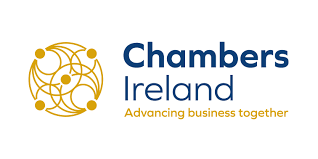ICC Ireland Calls for Scaling up of Investment in Energy Efficiency

3,500 Jobs Created Through Retrofitting With Potential for More
The International Chamber of Commerce (ICC) Ireland has today (10/04/14) released a new policy statement, Enabling Framework to Scale up Investments in Energy Efficiency, which outlines the barriers to global energy efficiency investments and how we can combat these.
Speaking this morning, Ian Talbot, ICC Ireland Secretary General said, “There is a strong business case for energy efficiency improvements including saving costs, improving competitiveness and productivity and developing new businesses. However, there are a number of potential barriers which stop companies from taking the first step towards energy efficiency. The high upfront costs, particularly pertaining to retrofitting, and the high transaction costs across sectors often deter businesses from improving their energy efficiency. Businesses must concentrate on the long term benefits in terms of cost savings and improved sustainability, which outweigh the high initial cost sometimes involved.”
“While businesses in Ireland have taken great strides towards improving energy efficiency, there is still an opportunity to achieve more. To that end, the Irish Government last year committed to establishing an Energy Efficiency Fund with a view to enhancing the level of finance available for energy efficiency projects, however there is potential for even more demand for this funding than has currently been set aside.”
“While finance is an obstacle, it is not the only one. This paper outlines both ways to increase demand for scaling up energy efficiency investments, and innovative financing methods which allow large upfront costs to be paid back through energy savings. A particular method of financing is the use of Energy Service Companies (ESCOs) and the potential to leverage bond markets. There is potential for this market to grow, for more jobs to be created and for more businesses and households to become more energy efficient, thereby reducing their reliance on imported fossil fuels. Our challenge is to make people aware of the benefits of energy efficiency and encourage more people to embrace retrofitting,” he concluded.
To download the full policy statement, click here.
